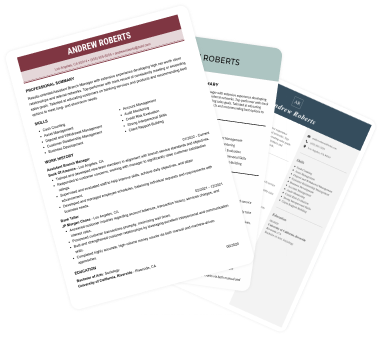
Top 50 Highest Paying Jobs in the UK in 2025
See the top 50 highest-paying jobs in the UK for 2025 across different industries. Explore salary ranges, job descriptions, and expectations.
November 7, 2025
Last updated on 29 January, 2026

Our customers have been hired by*:
As remote work becomes the norm rather than the exception, an estimated 165,000 UK citizens are now embracing the digital nomad lifestyle, choosing to live and work abroad in search of better weather, lower cost of living, and greater work-life balance. This mass exodus is not without consequence: it’s costing the UK economy over £3 billion annually in lost consumer spending alone.
But where are UK digital nomads heading, what sectors are driving this movement, and is Britain itself ready to welcome foreign remote workers in return?
Spain and Portugal are the top choices for British digital nomads due to the warm climate, rich culture, and relatively affordable living costs compared to the UK. Monthly search volumes confirm Spain (2,580 searches) and Portugal (1,610) as the most sought-after locations by UK remote workers.
In Lisbon, the Portuguese government has launched a dedicated Digital Nomad Visa, requiring proof of monthly income of €3,480 (approx. £3,023) as of 2025. The city’s appeal includes a thriving expat community, English-friendly services, and vibrant startup culture. However, Lisbon’s popularity has created challenges, including a severe housing crisis and growing local resentment over gentrification.
Meanwhile, Valencia is emerging as a more affordable, community-oriented alternative. With monthly costs of approximately £565 excluding rent, Spain’s Digital Nomad Visa (requiring a minimum €2,700/month (approx. £2,345/month) makes this Mediterranean city especially attractive.
Croatia is fast becoming a digital nomad haven thanks to its tax exemption on foreign-sourced income and a Digital Nomad Visa requiring a monthly income of €3,295 (approx. £2,866). With a low cost of living (£665/month excluding rent), it's ideal for budget-conscious professionals.
Estonia, with its pioneering e-Residency programme, draws in tech-focused nomads and business founders. Digital nomads in Estonia are subject to a 22% personal income tax rate, making it attractive for longer-term stays.
Chiang Mai remains a global hotspot for nomads, offering a cost of living of around £649/month, including rent and a deeply rooted international remote work community. However, nomads must contend with the "burning season" – a period of dangerous air quality from February to April – and infrastructure limitations outside the Old City.
Despite its global influence, the UK is not a popular destination for digital nomads, largely due to its high cost of living and lack of a digital nomad visa. Contrary to persistent online rumours, no such visa exists as of mid-2025.
The most commonly used entry option is the Standard Visitor Visa, which only allows remote work as an incidental activity – a legal grey area that creates uncertainty and risk for long-term stays.
Even if immigration hurdles were resolved, London’s monthly living cost, estimated between £4,400 and £4,650, makes it one of the least financially viable destinations for nomads. While it offers world-class networking, co-working infrastructure, and cultural vibrancy, its climate and expense level run counter to the key motivators for most nomads.
Cities like Manchester, Edinburgh, and Bristol offer more accessible alternatives domestically, while rural hotspots such as Whitby, Ambleside, and Rye are gaining popularity for their scenic value and surprisingly robust digital infrastructure.
Digital nomads are overwhelmingly drawn from technology and digital services industries, particularly in roles like web and app development, SEO, copywriting, data analysis, and UX/UI design. These roles typically offer asynchronous workflows, project-based contracts, and minimal physical requirements – all ideal for a mobile lifestyle.
Freelancers and entrepreneurs enjoy greater autonomy and satisfaction from the lifestyle, especially in regions like Bali, where a low cost of living enables entrepreneurial experimentation. Conversely, full-time remote employees often face time zone conflicts, cultural isolation, and the pressures of adhering to fixed schedules while working abroad.
Despite images of laptops on beaches, successful nomads rely on rigid routines and disciplined structure. Many create set work hours, use co-working spaces, and adopt strategies like time blocking, the Pomodoro technique, and deliberate social engagement to stay productive and fulfilled.
The "slomad" movement – characterised by slower, longer stays in fewer destinations – is on the rise. It offers lower travel stress, deeper cultural immersion, and better integration of work and life.
However, challenges persist. Loneliness, complex visa and tax regulations, and ethical dilemmas around gentrification are part of the lifestyle. Cities like Lisbon and Bali have seen housing prices spike due to demand from nomads, leading to community backlash. Calls are growing for a more responsible model of remote work, including policies that protect local infrastructure and encourage cultural exchange.
The digital nomad lifestyle is no longer a niche trend – it’s a macroeconomic and cultural movement. With high participation from UK professionals, the lifestyle promises flexibility, affordability, and rich experiences abroad. Yet Britain’s outdated visa regime and cost barriers keep it sidelined in this new global competition for talent.
As nomadism evolves, destinations that offer a balanced, ethical, and sustainable approach – like Croatia, Portugal, and Estonia – are best poised to attract the next wave of global talent.
The findings in this report about digital nomads were derived from a targeted review of recent mobility, visa, and cost-of-living data, as well as qualitative reporting on nomad behaviour and policy. Our process included:
This approach ensures the article reflects verifiable, up-to-date signals about where UK nomads are going, why, and what practical constraints (visas, costs, taxation) shape those choices.
Our editorial team has reviewed this article for compliance with LiveCareer’s editorial guidelines. It’s to ensure that our expert advice and recommendations are consistent across all our career guides and align with current CV and cover letter writing standards and trends. We’re trusted by over 10 million job seekers, supporting them on their way to finding their dream job. Each article is preceded by research and scrutiny to ensure our content responds to current market trends and demand.
All currency conversions in this article are based on the official exchange rate issued by the European Central Bank on 4 August 2025.
Category: Career Advice
Crafting a job-winning CV is all about showcasing your unique skills and experiences. Start with a strong personal statement that highlights your career goals and achievements.
Try Our CV Builder Now